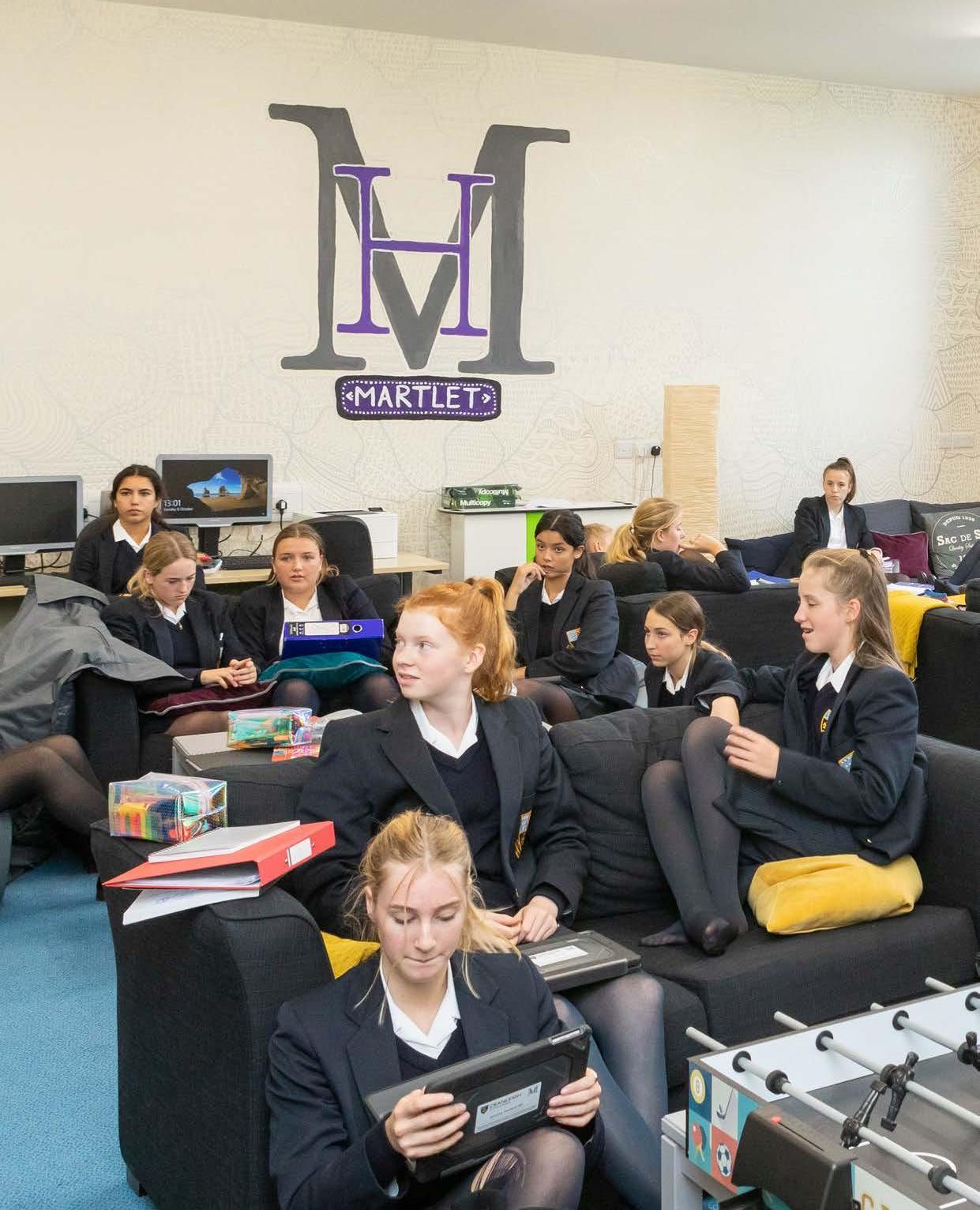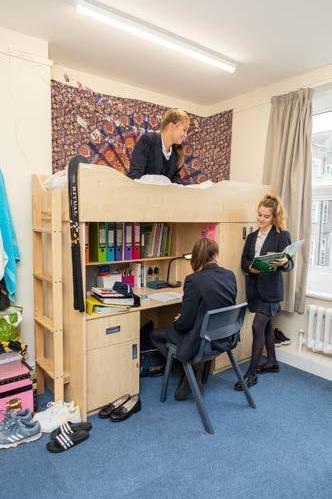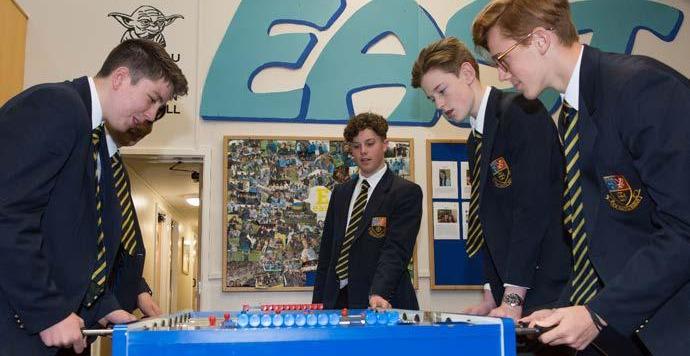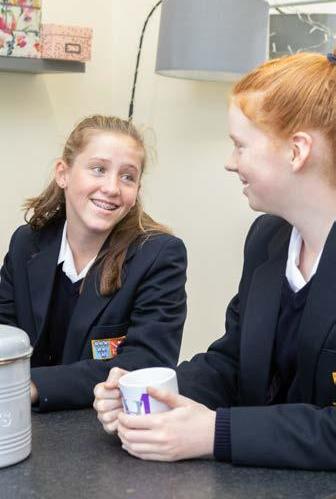
4 minute read
CrANlEIGh’S Co-ED ANNIvErSAry

Simon Bird - Deputy Head Dr Andrea Saxel - Deputy Head Pastoral Cranleigh School
Cranleigh’s Co-Ed anniversary
here’s an experiment for you: a wealthy philanthropist enlists your help designing a new school. She makes it clear that you have free rein. money is no object; all you have to do is conceive the very best educational establishment. Think about it for a moment; imagine the possibilities. Almost immediately, an important question emerges: is it single-sex or is it co-ed?
If you try this at home, I mean if you really try it, it’s incredibly difficult to find rational reasons to excuse segregating the sexes. Yes, there are some fantastic single-sex schools out there, but they’re not fantastic because they are singlesex. Historical, logistical, and financial pressures may ensure a rear-guard action fought by a few hardy single-sex schools, but it’s a dwindling component of the boarding sector, and rightly so.
Increasingly, traditional justifications that ‘girls have a different learning style’ or that ‘hormonal’ boys get too distracted by the opposite sex in the classroom seem patronising and anachronistic. How ironic too, that the societal upheaval of the #metoo movement should have been recruited as a marketing ploy by single-sex schools: as if a return to Victorian divisions between the sexes is any kind of solution. All of which is why an ever greater number of the last bastions of single-sex education are jumping ship. And also why you probably can’t name any schools to have gone in the opposite direction.
Cranleigh School first opened its doors to girls more than 40 years ago, and this year we celebrate 20 years of full coeducation from 7-18. We’re proud of our set-up. It works. It’s fundamental to who we are. We have an equal number of girls’ and boys’ Houses, and, crucially, equal numbers of male and female House Staff sat at the table when whole-school decisions are taken. Virtually the entire fabric of the day is coeducational: lessons, Music, Drama, Chapel, Debating, meals, Duke of Edinburgh, Scholars’ Society, Prefects, Student Council, Dance. So too, many House competitions, a
surprising amount of sport, academic clinics, lectures, overseas trips and so on.
Affiliation between a boys’ and girls’ House ensures a strong and shared sense of pride, helps develop social ties, and keeps siblings close. Tightlyknit relationships between Housemistresses and Housemasters ensure an equality of pastoral care and an unshakeable bond of unity that is then reflected in the pupils themselves. We, not them.
We’ve learnt a few lessons along the way too, and made some mistakes. Having female Sixth Form Prefects in charge of Fourth Form boy bedtimes (a late 1990s experiment) wasn’t a great success. Nor, less predictably, was mixed chess. To avoid at all costs is the sense that the opposite sex are an uncomfortable addition, an extra. And don’t underestimate the time it takes for full co-education to become embedded, and not just with the students: staff attitudes may take longer to update than the online prospectus. The constitution, culture and language of a school, developed sometimes over centuries, can take a long time to change, like an oil tanker turning around. You may have a new cohort of boys or girls but do the attitudes and habits of the school really reflect that?
And what about the terminology? Do you need a specially appointed Senior Mistress? Does that guarantee the girls a degree of protection, an SMT champion for all things female, or does it confirm the girls as an exotic off-shoot of real school life? Should the boys have their own Head of Sport? As for Senior Prefects – what if the two best candidates are both girls? Does it matter? Would that be unconscionably woke? Twenty years is a long time to work through such questions. And it’s a reflection of how second-nature coeducation is to us now that even asking such questions seems like a snapshot from another time.
One thing that most of us can agree on in education is the importance of positive role models, whatever their gender, and we have been blessed with

a wealth of former pupils prepared to give up their time and pass on the benefit of their experiences to inspire future generations: I once sat where you sit now, a connection that resonates with our youngsters. Increasingly the sex of those speakers ceases to matter –the (male) newspaper editor, the (female) fighter pilot. They are all just Cranleighans, citizens of the world, and the fixation on co-education melts away. Now we can just talk about education.












